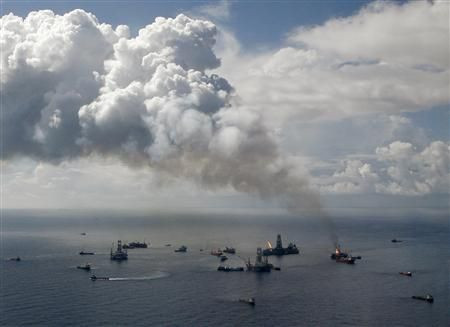Gulf of Mexico Oil Spill Trial Delayed; BP Faces Billions in Fines

The trial on the compensation for the Gulf of Mexico oil spill in 2010 has been delayed until March 5 with negotiations continuing on what should be the amount that BP should be paying.
BP and the Plaintiffs' Steering Committee (PSC) are continuing with the discussion and extra time was sought from the federal judge in New Orleans to allow settlement talks to come to a conclusion.
PSC is representing fishermen, property owners, restaurateurs, hoteliers, seafood processors and others who have claimed that their livelihoods have been seriously affected following the explosion aboard the Deepwater Horizon drilling rig and the subsequent Gulf of Mexico oil spill.
BP and the PSC are working to reach agreement to fairly compensate people and businesses affected by the Deepwater Horizon accident and oil spill, BP said in a statement.
In addition, the U.S government has sued BP for pollution claims. Fines to the government for polluting the Gulf of Mexico should be totaling to be many billions of dollars.
In the worst offshore U.S. oil spill incident in April 2010, over 4 million barrels of oil was emitted from the Macondo well owned by BP.
The main corporate defendants are BP, which owned 65 percent of the Macondo well, Transocean Ltd., the Vernier, Switzerland- based owner, which owned the Deepwater Horizon rig and Halliburton Co, which provided cementing services for the facility.
In August 2010, for making sure that the victims of oil spill are receiving compensation on a faster time frame than which would be possible by engaging in lawsuits a fund was instituted by BP.
According to BP, about $6 billion has been paid out through this fund. At the same time, lawyers of plaintiffs said the amount was too low.
Suppose the discussions between BP and PSC do not result in an agreement, District Judge Carl Barbier, who will preside over the scheduled trial, will have to determine whether the companies must pay punitive damages to business and property owners.
© Copyright IBTimes 2024. All rights reserved.




















